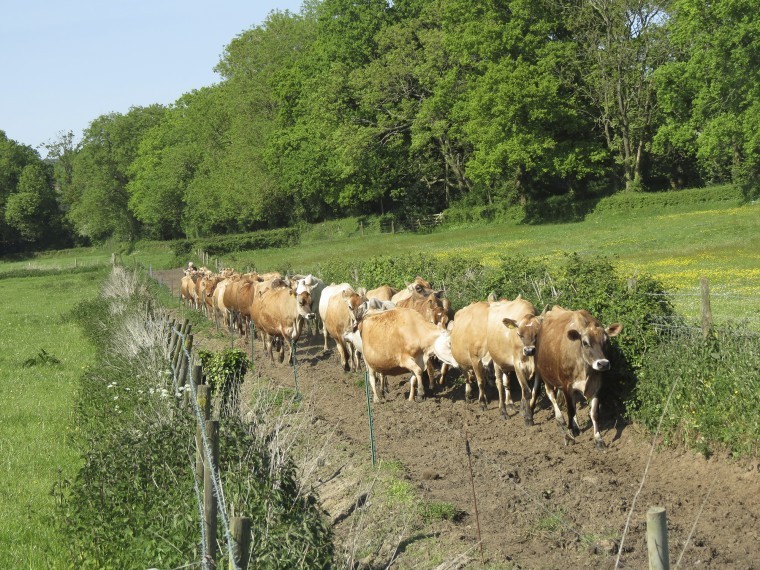Meadow Cottage Farm near Headley in Hampshire has only kept going by diversifying into producing and marketing its milk.
“It’s the only way forward,” said Celia Haynes, who with her husband Peter and children Mark and Julie make up the Blackburne and Haynes partnership which runs the farm.
“You have to cut out the middle man,” added Celia, who is horrified by the prospect of Brexit and the pressures which leaving the European Union will unleash on small family farms such as her own.
The pricing of milk is all wrong, she argues, and the proposed merger between Sainsbury’s and Asda will just increase the drive to keep milk prices low. “There isn’t anyone who wouldn’t pay an extra 10p or 20p for their milk if the price went up, but the supermarkets just won’t do it. Any time the milk price increases, only a fraction comes back to the farmer.”
Because of the long term decline in dairy farming, Celia fears that when she and her husband Peter’s generation die out, their children won’t be able to continue running Meadow Cottage Farm. “Mark wants to carry on, but how can he when he’ll have to find and pay other people to do our work?”
When Peter and Celia Haynes began milking at the farm in 1967, it was reputed that a pint of beer, a loaf of bread and a pint of milk all cost the same. Today, a good wholemeal loaf can cost £2 or more, a pint of beer can cost at least £3.50 and four pints – or 2.272 litres – of whole milk in a supermarket costs £1.09.
In 1965, two years before they began milking, Peter and Celia met while she was a farm secretarial student at Studley College in Warwickshire and he was a member of the local Young Farmers. They married two years later in 1967, and in the same year started producing milk at Meadow Cottage Farm.
Celia’s mother had bought Meadow Cottage after her husband died, and she and Celia and her son Hugh Blackburne moved there from Haslemere in 1965. They bought the farm and 23 acres for £12,750.
Rather than persevere with the heavy clay in Warwickshire where his family had been dairy farmers, Peter chose to move down to the Hampshire sand at Meadow Cottage. When Peter and Celia first moved in, there were no buildings or infrastructure. “When we came here, it was just a little cottage and three fields,” Celia remembered. “Someone used it for cattle grazing, but they had moved off.” There was the cottage and a hedge where the fields began.
Beyond that hedge, Peter and Celia and her brother Hugh made a start on their buildings after a silage clamp had been made in preparation for the cows’ arrival. “We have photographs of everything going up from the first concrete block which was the corner of the dairy.” Next, a cow yard was put up by Derek Warwick, the racing driver who had a business in Alresford which is still going. Other buildings were added on in stages. Eventually, a neighbour made 24 acres available, and other pieces of rented land were offered for grazing.
At the end of 1967, the cows arrived just before the big foot and mouth outbreak which hit the dairy industry in 1968. “We went round all the sales furiously trying to buy enough Jersey cattle to fulfil our milk contract,” Celia said. “We just managed to do that before the movement restrictions began, and so we could start milking.”
By 1968, it was obvious that the farm had to do something as well as milking to bring in more revenue. Hugh’s contracting business was ailing because he was spending so much time on the farm. “We decided that we must do something different. So we put a notice outside saying ‘cream for sale’, and I think the district nurse turned up to buy the very first pot of unpasteurised cream.”




